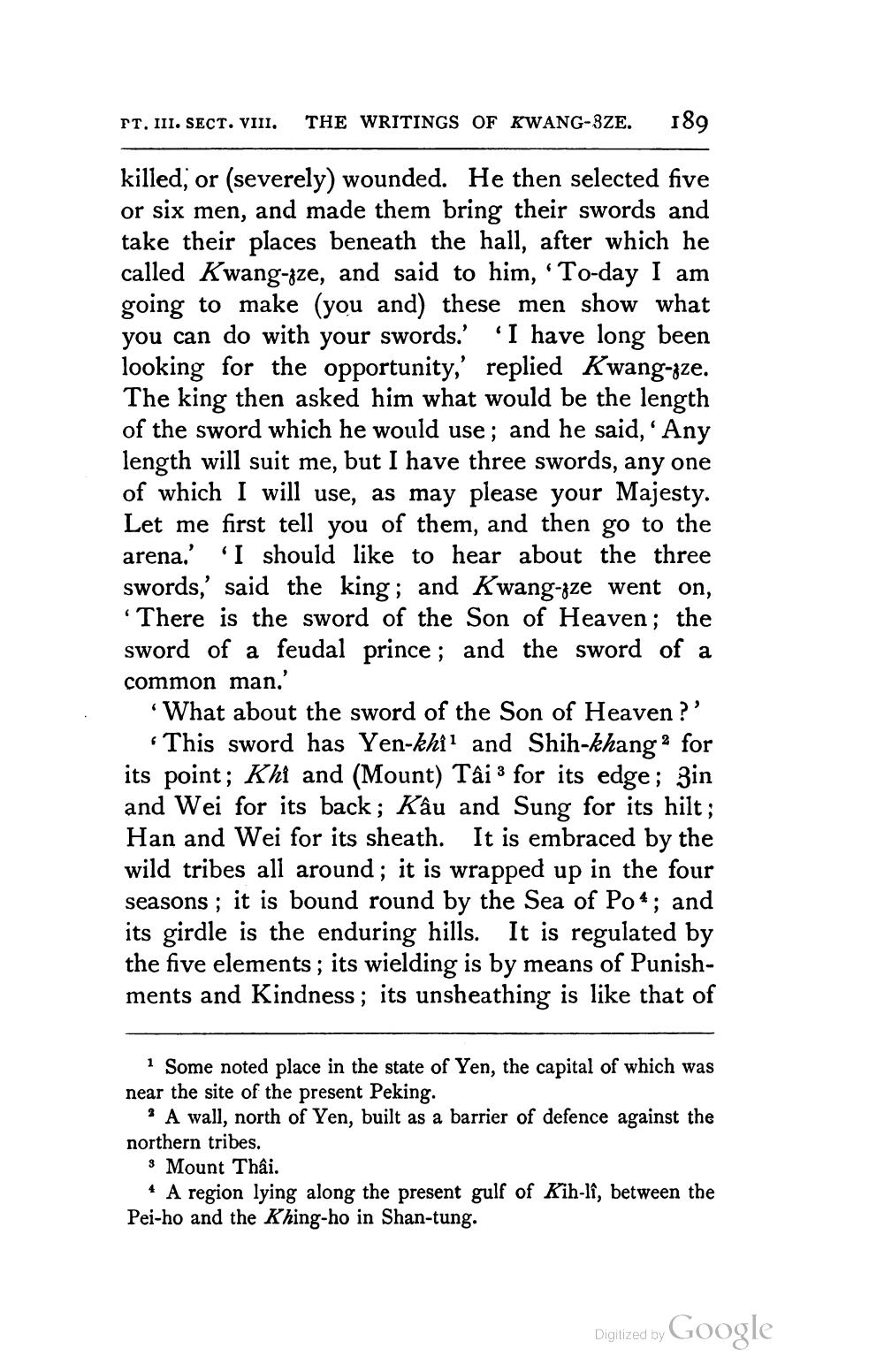________________
FT. III. SECT. VIII. THE WRITINGS OF KWANG-BZE.
189
killed, or (severely) wounded. He then selected five or six men, and made them bring their swords and take their places beneath the hall, after which he called Kwang-zze, and said to him, 'To-day I am going to make (you and) these men show what you can do with your swords.' 'I have long been looking for the opportunity,' replied Kwang-zze. The king then asked him what would be the length of the sword which he would use; and he said, 'Any length will suit me, but I have three swords, any one of which I will use, as may please your Majesty. Let me first tell you of them, and then go to the arena.' 'I should like to hear about the three swords,' said the king; and Kwang-zze went on,
There is the sword of the Son of Heaven; the sword of a feudal prince; and the sword of a common man.'
What about the sword of the Son of Heaven?'.
This sword has Yen-khil and Shih-khang 2 for its point; Khi and (Mount) Tâis for its edge; Zin and Wei for its back; Kâu and Sung for its hilt ; Han and Wei for its sheath. It is embraced by the wild tribes all around; it is wrapped up in the four seasons; it is bound round by the Sea of Po 4; and its girdle is the enduring hills. It is regulated by the five elements; its wielding is by means of Punishments and Kindness; its unsheathing is like that of
1 Some noted place in the state of Yen, the capital of which was near the site of the present Peking.
? A wall, north of Yen, built as a barrier of defence against the northern tribes.
8 Mount Thâi.
4 A region lying along the present gulf of Kih-lî, between the Pei-ho and the Khing-ho in Shan-tung.
Digitized by Google




